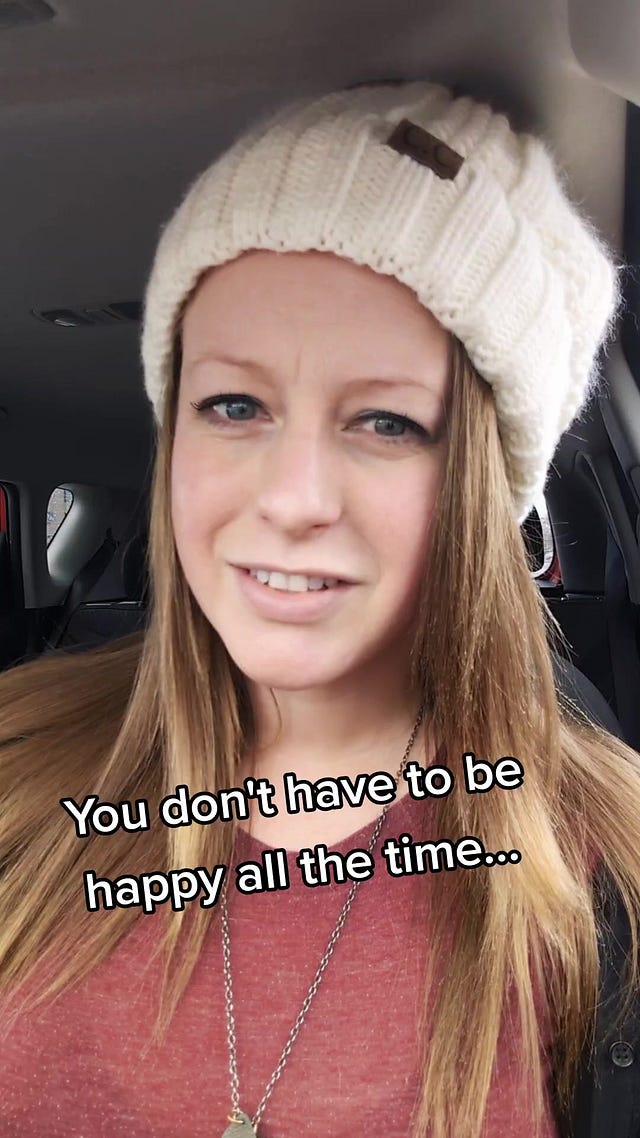Healthy optimism vs. toxic positivity
Have you been there? Something happens, leaving you feeling discouraged, hopeless and sad. Then someone comes along and says something like: "Happiness is a choice!", "Look on the bright side!", "There's always a reason to smile!" or my absolute favorite… "You know, there's always someone worse off than yourself!".
It's happened to me too over the years, and I can say without a doubt that it has never helped the situation I'm in.
On the surface, this kind of "positivity" might seem nice and encouraging, but in reality, it can minimize and invalidate the experience of the person who is struggling.
There's a fine line between encouraging someone, and invalidating their struggle. Nothing is wrong with having a positive outlook. But when we have the opportunity to give someone hope, we need to make sure that it's mixed with compassion and empathy.
How to tell the difference between healthy optimism and toxic positivity:
Healthy optimism offers hope to the hopeless while also empathizing with, encouraging and edifying the other person.
Toxic positivity invalidates, minimizes and masks over the other person's experience in an attempt to cause guilt and shame for not expressing positivity in their pain.
In other words, the heart behind optimism is hope. And the heart behind toxic positivity is denial. One has empathy, and the other one doesn't.
People express toxic positivity for a couple reasons. One is to speed up the healing process in the other person because they themselves have learned to speed up or mask their own as a coping mechanism. Toxic positivity can be a form of projection. People who struggle with toxic positivity sometimes live in denial of their reality and they expect others to do the same. They project their own mindset and push it on others in the name of "positive vibes only". The other reason some people express toxic positivity though, is simply because they are distracted with their own happiness and aren't in a place where they want to help someone who is struggling.
Readers, don't think I am innocent in all of this. I'm on the autism spectrum so let me tell you: I can be dense. I've unintentionally made people feel invalidated when I've tried to "encourage" them. But I've also learned how to improve my communication. Now I can warn others of the harmful effects toxic positivity can have on someone, and I can teach you how to correct it like I did.
How to turn toxic positivity into healthy optimism:
LISTEN. The very first step to encouraging anyone at all is to listen, and listen fully. Let the other person say everything that they want to say before you say a single word. And really gauge this situation. Many, many times, a person simply wants this and nothing else. They don't want encouragement, they don't want hugs, and they certainly don't want you telling them that they should be ok. They simply want a listening ear. "Talk therapy" is a profession for a very good reason.
EMPATHIZE. Maybe you haven't gone through exactly what they've gone through, but we can all find something about their struggle we can relate to. For example, if the person is sad because their friend ghosted them, try remembering a time in your life when someone you cared about ignored you. How did it make you feel? Probably pretty rotten. This is more or less how the other person is feeling too. Now that you can relate to this person, even if it's only on a small scale, you are officially empathizing. Congratulations!
ASK. Ask if this person wants feedback or encouragement. If they do, skip to number four. If they don't, see number one. Your mission is complete. Simply sit with them in their pain and let them know you're there for them. Being present in their suffering is sometimes all that they need.
ENCOURAGE. Healthy encouragement is a beautiful thing. It means you've empathized enough to understand their struggle, and now you are offering love, hope and edification. Saying something like, "I want you to know that you're amazing person. Thank you for being vulnerable and opening up to me. Remember that you're not alone. I'm here for you, and God is with you wherever you go. I will be praying for you and checking up on you while you heal". This is SO much more powerful than "Just choose happiness!" and guaranteed it will not cause resentment.
Here is the bottom line: If someone chooses to share their pain with you, that's a huge honor. Really think about that and take it seriously. The fact that this person has chosen you above anyone else in that moment to confide in, speaks volumes. They TRUST YOU. Don't break that trust by saying something that could hurt them even further than they already feel.
"This capacity for empathy leads to a genuine encounter. We have to progress toward this culture of encounter in which the heart speaks to heart"
-Pope Francis



